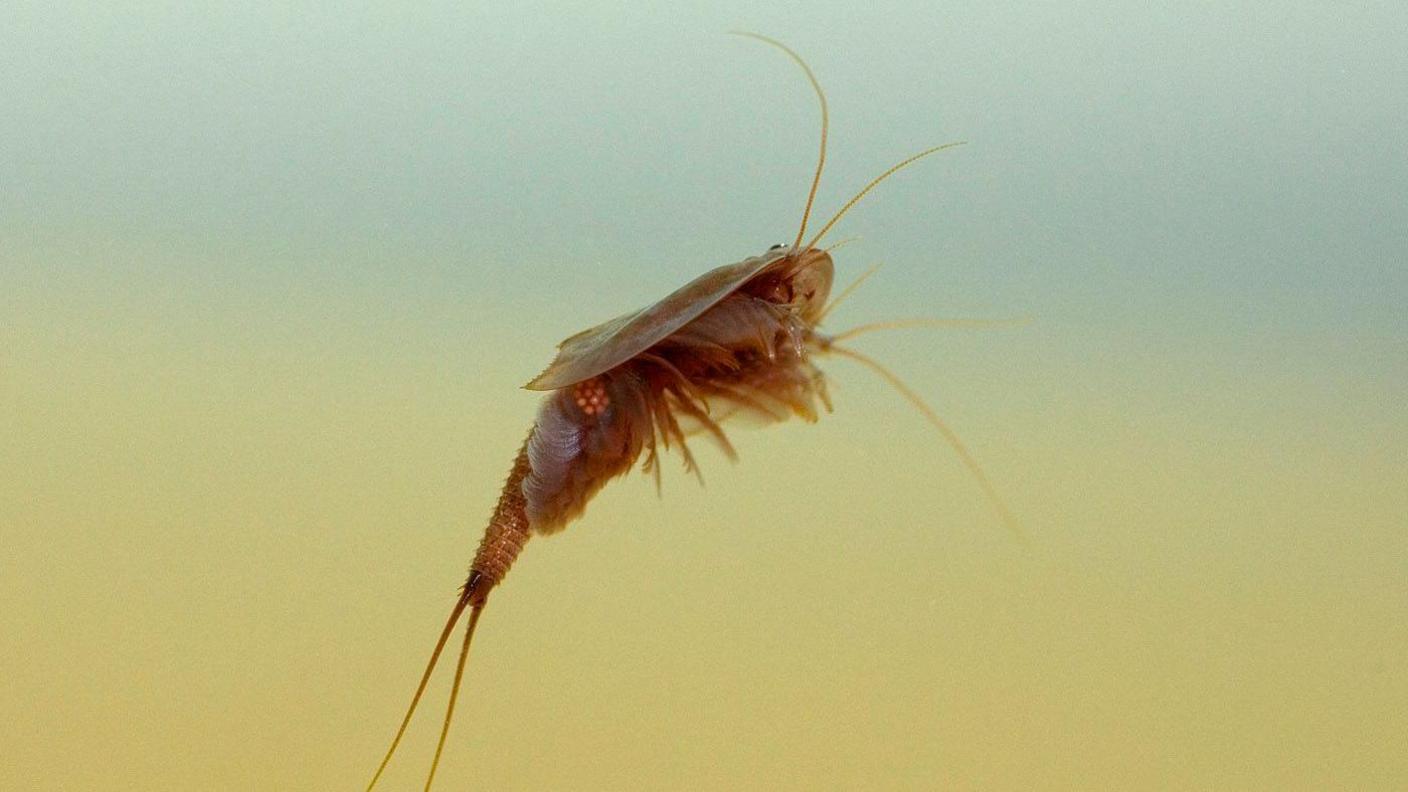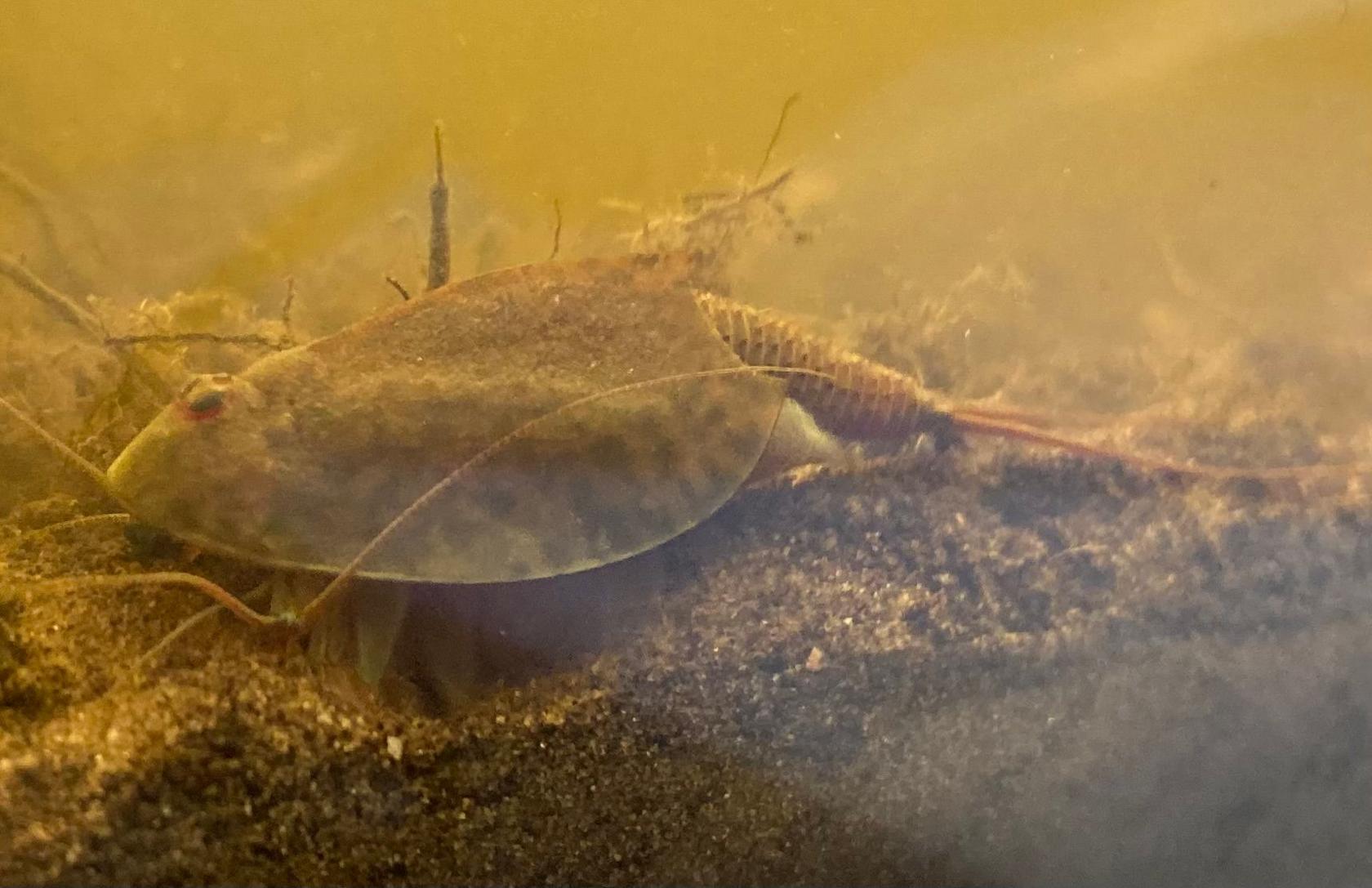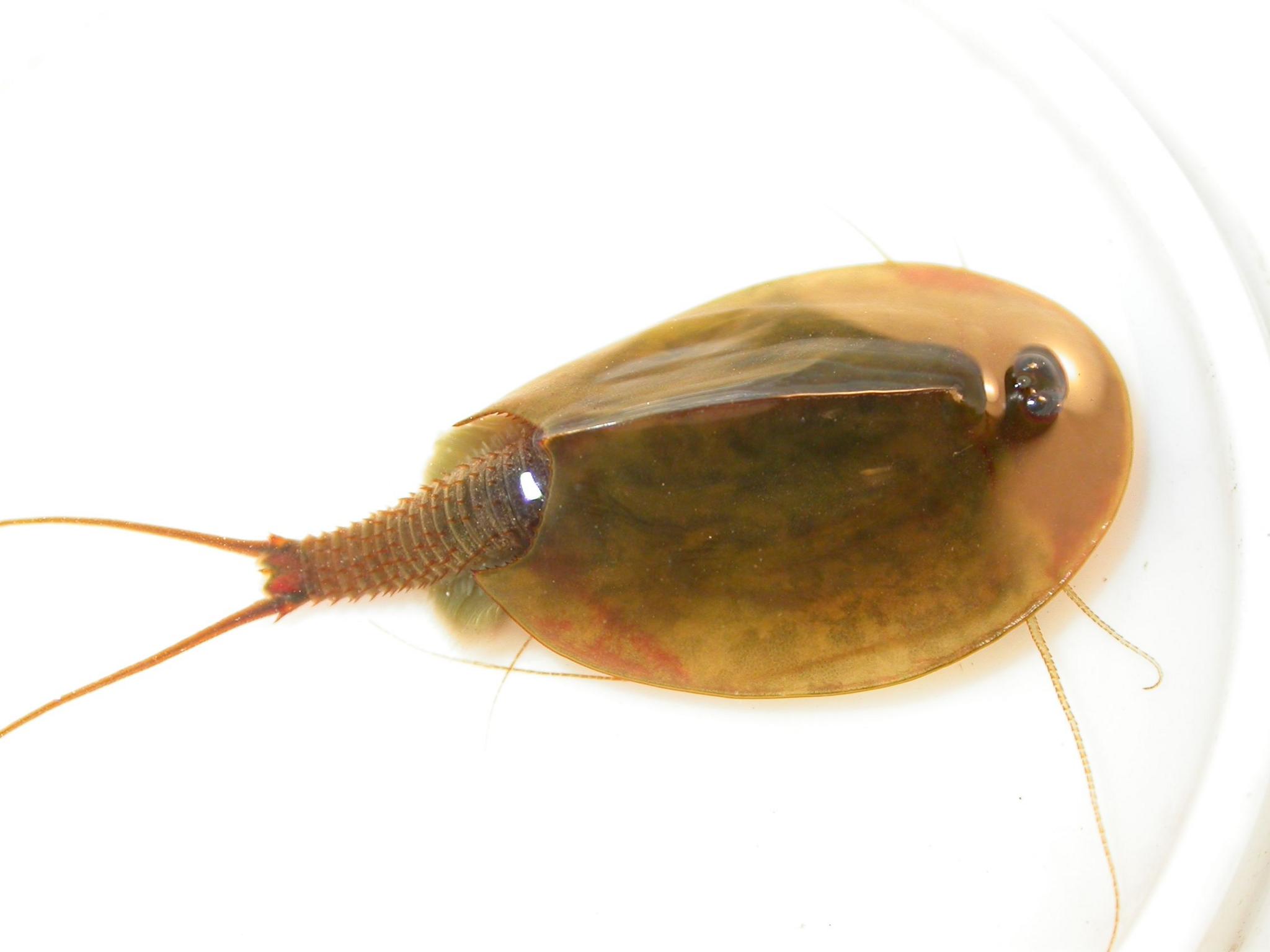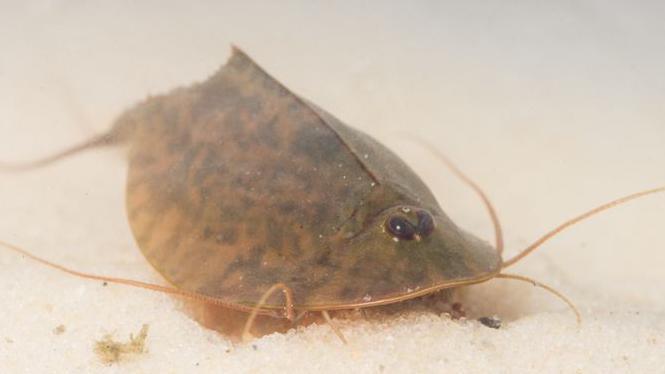Wet weather helps ancient tadpole shrimp to hatch

The tadpole shrimp was last officially recorded at Mersehead in 1948
- Published
Wet weather has helped a new population of one of the UK's most ancient creatures to hatch in the south of Scotland.
The tadpole shrimp - a relative of one of the oldest known animal species in the world - has been returned to RSPB Scotland's Mersehead Reserve in Dumfries and Galloway after more than 75 years.
It is only the third population of the shrimp in the UK - the other two are at the nearby Wildfowl and Wetland Trust (WWT) site at Caerlaverock and the New Forest in Hampshire.
In the summers of 2024 and 2025, tadpole shrimp eggs were introduced at Mersehead and recent rains have helped to provide the necessary rehydration for them to hatch.

The shrimp is a relative of a species dating back at least 220 million years
The last official record of the species at the site was in 1948.
It is thought they were wiped out in the 1960s when the area was engulfed by the sea.
Now, through the conservation programme Species on the Edge, wildlife charities Buglife, RSPB Scotland and WWT have been working with local ecologist Larry Griffin of ECO-LG Ltd to reintroduce the shrimp.
Recent wet weather has finally allowed the eggs to hatch and two adult tadpole shrimps were spotted at the site this month for the first time in more than three-quarters of a century.
Craig Macadam, conservation director at Buglife, said: "It's been over 75 years since the tadpole shrimp has swum in pools at Mersehead, lost from this stretch of coast because of coastal erosion.
"Bringing this species back to Mersehead is the culmination of many years of surveys, research and preparation by many organisations and individuals.
"This work will help secure the future of this species in Scotland, and should pave the way for further translocations to try and restore and enhance its original UK distribution."
Nick Halfhide, chief executive of NatureScot, said it was a great example of how people were "working every day to restore and value Scotland's nature".
"Species on the Edge is one of the country's most ambitious conservation projects to date and it is fantastic to see that, through communities and partnerships, species recovery in Scotland is achievable," he said.
Tadpole shrimp's 'clever biology'

The species has survived thanks to its "clever biology"
The tadpole shrimp is a relative of one of the oldest known animal species in the world - a species with fossils dating back 220 million years.
The reason it has managed to endure so long, surviving even ice ages, can be attributed to its "very clever biology".
All tadpole shrimps in the UK are self-fertile female hermaphrodites - meaning a population can start from just one hatched egg.
They have adapted to survive highly-inhospitable conditions living in seasonal pools or puddles which dry out in the summer.
These pools may only last a few weeks before drying out, and then it may be years or even decades before the water returns.
When the pools dry out all predators and competitors are killed off.
Tadpole shrimps have very rapid development, maturing from an egg to adulthood in just two to three weeks.
Source: NatureScot
Revival plan

Dried sediment containing shrimp eggs has been rehydrated by wet weather to allow the shrimps to hatch
Between 2023 and 2024, Dr Griffin has been rearing shrimps hatched from eggs collected at nearby WWT Caerlaverock.
In total, 14 survived to adulthood and soon laid their own eggs in the tanks they were reared in.
The sediment in these tanks, containing the eggs, was removed and dried.
In the summers of 2024 and 2025, dried sediment containing more than 20,000 eggs was spread into bare earth of seasonally wet, but at-the-time dry, coastal pools at the RSPB's Mersehead reserve on the Solway Coast.
The pools are located on coastal grassland behind the dunes, further inland from the area where the previous population was lost in the 1960s.
The pools have since been wetted and dried several times, but this autumn the eggs have finally hatched, more than a year since they were first returned to Mersehead.
Related topics
- Published29 July 2010